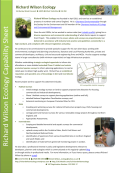
Lake Victoria Ramsar Site, Uganda. Ecotourism generates a sustaible income for local fishermen (centre) punting birders from around the world in search of the enigmatic shoebill (Balaeniceps rex) (left) amongst the tranquil scenery of Lake Victoria (right). Previous to this, they hunted the shoebill - a fish feeder.
This convention, which goes by the rather long title of The Convention on Wetlands of International Importance, especially as Waterfowl Habitat, was signed in the town of Ramsar on the 2nd February 1971; though it didn’t come in to force until December 1975 (when I was 6 months old). So for all but a very short piece of my life, the wetlands that are designated by what is coveniently and more easily referred to as the Ramsar Convention, have tried to protect these vital habitats. Vital for waterfowl…but vital for us too.
Many may not have heard of the Ramsar Convention, including David Dimbleby [see 50 mins in to the programme], but this convention aims to:
maintain the ecological character of their Wetlands of International Importance and to plan for the “wise use”, or sustainable use, of all of the wetlands in their [nations] territories.
The UK has 168 Ramsar sites, the most of any nation. And they are full of wildlife and as you might expect, full of water. And wetlands are important for humans too; and not just for the pleasure it gives some people in watching waterfowl, otters or other wetland wildlife. They provide us a service, such as clean water and flood control. The UK National Ecosystem Assessment (NEA) has calculated a financial value that these habitats give human society. For example, if all inland wetlands are assumed to generate flood control and storm buffering benefits, the estimated aggregate value is £366 million per year for the UK. The total financial benefit that inland wetlands give human society has been estimated at almost £1.2 billion. And if you include coastal wetlands, this rises to just over £7.5 billion each and every year (see Table 4 in this document to see where I got these values from). That represents approximately 1 % of the UK Governments spending announced in the 2011 budget. And nature delivers this for free.
There are many other examples of how nature delivers services to us for free – explore the UK NEA’s website yourself to find out.
Water. Between 60 % to 75 % of us is made of the stuff so I would say that the Ramsar convention is in some way, intimately important to our very being. So it is certainly worth celebrating this Iranian gift, especially as not much good news comes out of Iran at the moment (which is a great shame). Perhaps the Iranians and indeed the world should shout a little louder about the Ramsar Convention?





